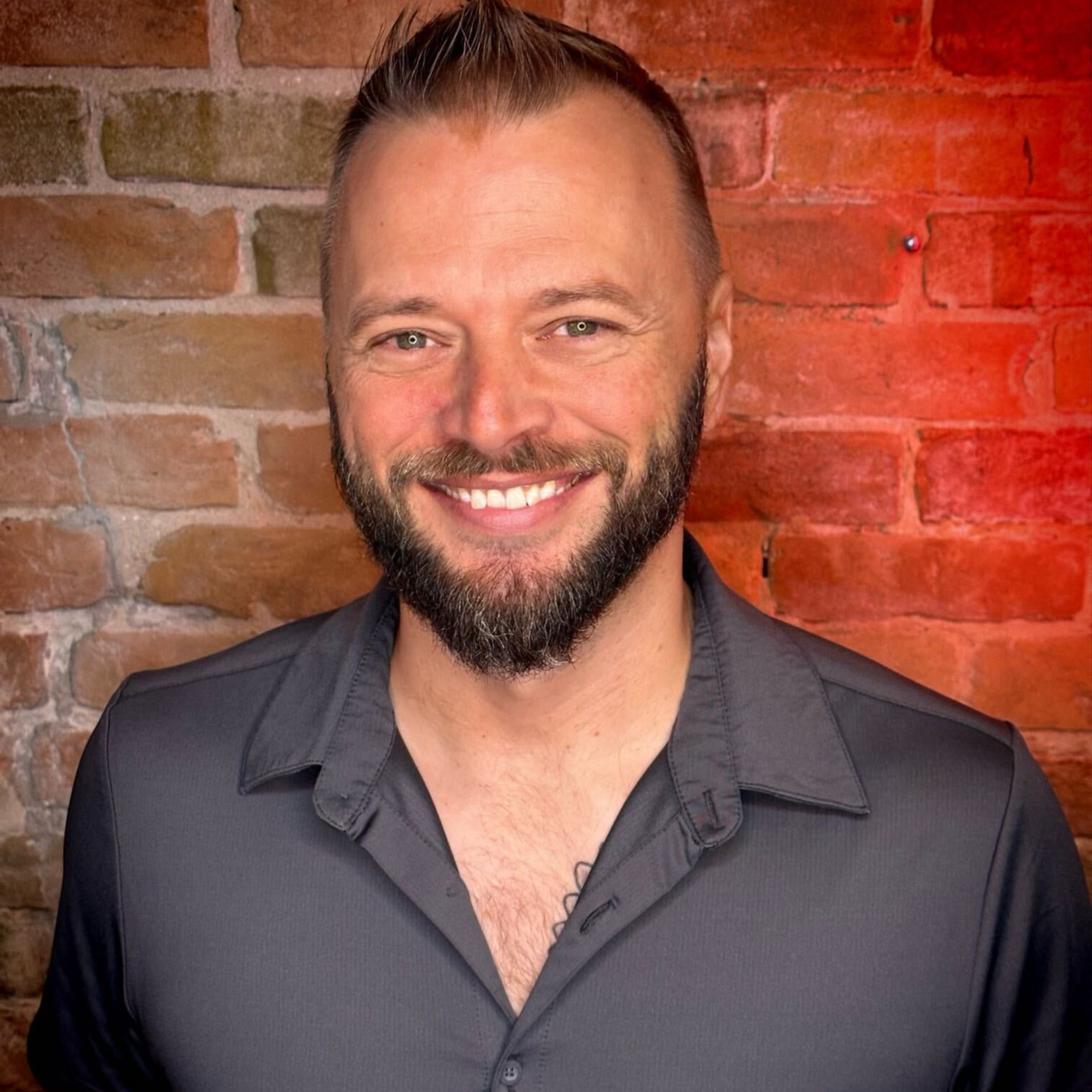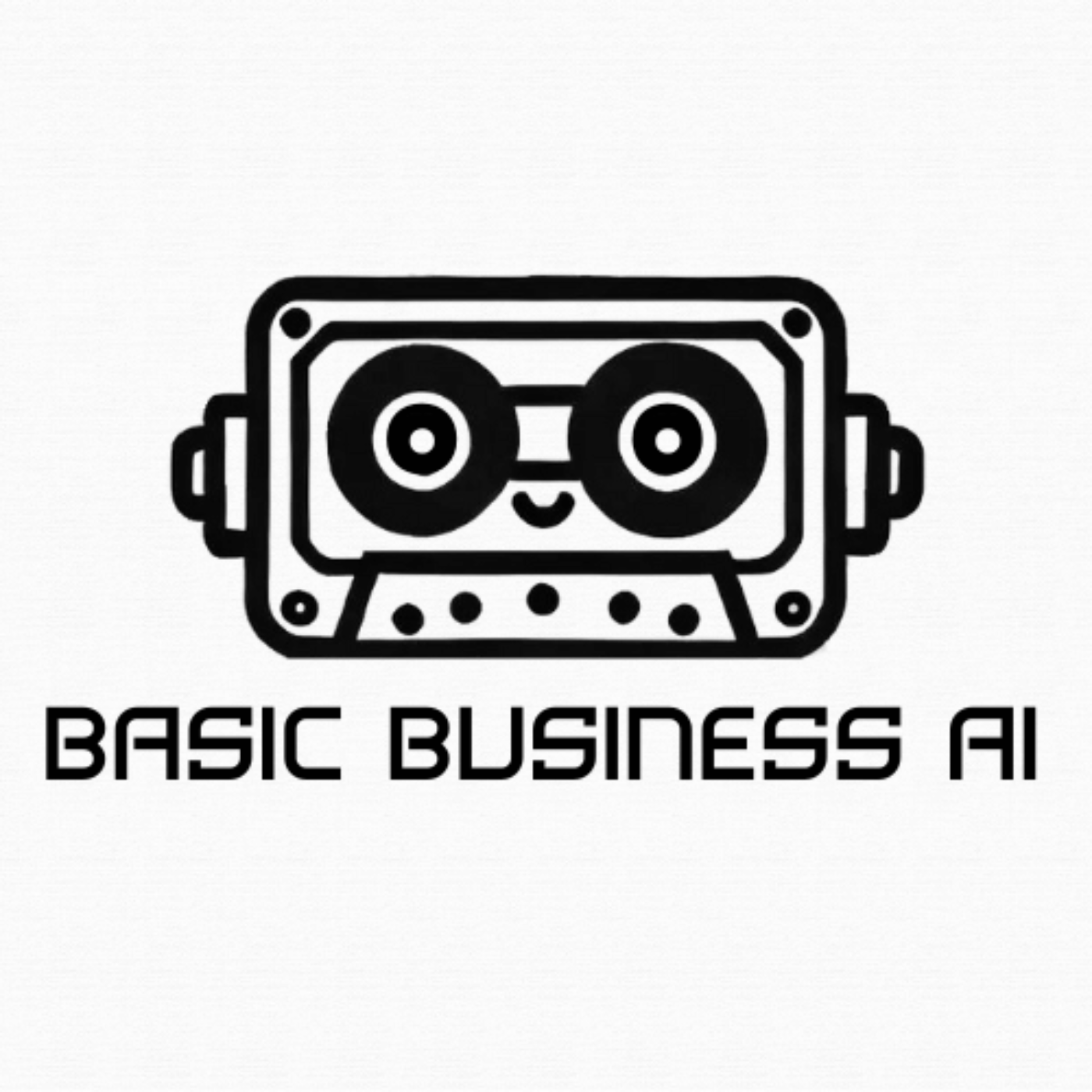Episode Transcript
[00:00:00] Speaker A: Welcome to Basic Business AI, a podcast dedicated to simple AI strategies for businesses who don't want to get an advanced tech degree or hire some marketing bro. I'm your host, Josh Thomas. You can find me on social media.
We bring on regular business owners like you and me to discuss practical strategies, ideas, and perspectives about AI without getting in too far into the weeds of the tech. Bbai is sponsored by anabots. We build AI with heart. Our trained AI sales and support assistants work twenty four seven to increase sales, reduce costs, and free up your time so you can focus on growing your business. You want to install a 24/7 near human sales and support team in your business? Go to Anabots AI to learn more. We have 100% free options, low cost options to fit any budget. Once more, that's Anabots AI. Today's guest is Carl King. Carl King is a seasoned relationship coach with a story as diverse as the lives he transforms. From his early days navigating the ebbs and flows of a musician's life to embracing the challenges of various career transitions, Carl has weathered many storms of change himself. Each twist and turn in his journey became a lesson shaping his understanding of resilience and adaptability. Carl, welcome to the show. I have one question for you. From your perspective. How is AI reshaping the future of your business?
[00:01:32] Speaker B: Hey, Josh, thanks so much. Yeah, I think that's a pretty amazing question, specifically for this moment. I was on Reddit, of all places, right?
And I saw this unlove hate relationship with Reddit.
[00:01:48] Speaker A: Mostly hate.
[00:01:49] Speaker B: I think most, most. I think most people do. But I was on there and I was in the life coaching. Relationship coaching sub, and I got an ad for an AI life coaching software, which really surprised me. I don't know why it did, but it surprised me because I was thinking, and immediately I thought about, oh, my goodness, the future of relationship coaching or life coaching is over as we know it. As I'm sure you, you know, I'm sure you and your guests have, have had, or people that are listening have had the challenge of thinking about their industry. And with the advent or the introduction of AI, you know, some jobs go away and some things almost become undead, necessary or redundant. And so, yeah, I think it is going to reshape. It is reshaping as we see it, the life coaching, the relationship coaching sector.
[00:02:49] Speaker A: And industry, you know, and, and I'm so glad to have you on here about this. First of all, I always ask the same first question, but I got to set this aside for a minute because I'm a former musician myself. Yeah. I've gone through lots of twists and turns in career transitions, and I was just thinking as I was reading your bio, I'm like, dude, you're stealing my life, bro. Like, we have walked a lot of the same paths here, Jeff.
[00:03:17] Speaker B: Yeah, that's, my girlfriend says that the most interesting people have walked very interesting lives. Right. And they're not doing the traditional stuff that everybody else does. So I'm, you know, at first, I guess early on, I was really bashful about the fact that I hadn't had, like, a career, traditional career, but I've, you know, I've really embraced it. I've had so many different amazing experiences and had so many good jobs and interactions. So, yeah, I wouldn't trade it for the world. What kind of, what kind of music did you play?
[00:03:52] Speaker A: Yeah, actually have a degree in music. Okay. I studied percussion in college and I was a teacher. Yeah. So, yeah, that's really cool. Form the official podcast band. Maybe later on the jam session. But I'm curious, Carl. So what I love about this show is we bring on people not to share, like, their latest AI gadgets, but just people that are either observing or casually participating in this movement. I mean, it's not going to stop anytime soon. And you hit on something important like, hey, is my career in jeopardy to automation and machine learning? And rather than, and we can talk about the fears, but I'm curious, have you found some ways to maybe embrace AI, or do you see some opportunities where AI may actually augment your ability to do what you do?
[00:04:48] Speaker B: Yeah, absolutely. So I initially, you know, I expressed my initial kind of trepidation about when I saw that ad. And then I stopped and I said, hold on a second. Your whole life, your whole work, all that you do is about change. It's about embracing the unknown, stepping into something that, that could feel very scary and doing that thing. And so I said, you know what? I'm going to go and I'm going to download this app and I'm going to see what it's about. So I actually, actually downloaded it and started working with this AI coach around business expansion. So I think it's been great so far.
I've talked to, I have a mentor in this space that, you know, she has said that she refuses to do any type of, or allow AI to do any type of editing or any type of writing for her or any type of ideation. And that's not my approach. I feel like using a software to ideate, to create, to, you know, expand on ideas that I already have and to massage work that I've created and make it better. I've found that that's a wonderful tool. And there, you know, there's so many different machines out there these days. I, you know, I don't want to name all of them, obviously, I can't, but I can name a few.
So I found that they help. They help with the process of ideation. They help when I'm, you know, either looking at a blank page and trying to get unstuck, or when I'm working on something that I feel is really good, that I want to be excellent.
[00:06:25] Speaker A: Yeah. And that's a great way to look at it. One of the things that I've seen just along those lines is, let's say, 80% to 90% of the tasks that we perform as a human being. And this can be statistically proven. There's studies on this. It's pretty much autonomous now. Our brains are doing them, our bodies are performing these motions. But once the idea of what we call muscle memory are these things that we've done so many times that our brain has routed energy away from focusing on them, because we don't have to think about breathing for sure. If you go and play baseball for 20 years, you don't have to think about the mechanics of getting your hip and your shoulders to swing the bat. It just happens. Same thing with golf or a musical instrument. Over a period of time, I've hit enough drums to where I don't have to think about how to hit a drum. I just know how sure the idea of AI is. Take those autonomous tasks, those things that you really don't need to be doing, like making a list of ideas or something. You could have that over to the side and then use your brainpower, reserve some of that brain power for the higher level tasks like creative thinking, organizing ideas and strategy.
[00:07:55] Speaker B: Yeah, absolutely. You know, and, for instance, decision making, it uses, it taxes so much of our mental capability. And so if you don't have to make a bunch of decisions, or if you can use decisions that are already being made and, you know, and iterate on them or, you know, ideate on them, however you want to use that, use, use machines to innovate on stuff that we already do. I actually use that analogy of the autonomous processes of our body, about blood pumping, about our skin cells shedding during the night and all of that stuff to talk to my clients about change. You know, many people come to me and they're stuck. They're trying to figure out okay, so do I make this decision or that decision? And I say, well, change is happening, happening to you already a lot. Uh, and. And most of it, you don't have any. Any control over, and you don't have any, um, cognition or input in the. In the way that your body or your systems are changing. So, yeah, absolutely. Use it. Use it to help.
[00:09:01] Speaker A: So let's talk about the idea of deciding. You know, I don't know. This was recently shared with me. I. You. Yeah. You know, sometimes the most profound things that you hear are the things that you kind of already know but you've never heard before, you know?
[00:09:18] Speaker B: Sure.
[00:09:18] Speaker A: And. And one guy told me just very recently, he said, do you know what the word decide means?
Like, do you know what the word decide means?
[00:09:29] Speaker B: I think it comes from decidir or something like that. It's like to split or something. Right?
[00:09:35] Speaker A: Yeah, that's right. You are cutting off every other alternative.
[00:09:41] Speaker B: Yep.
[00:09:41] Speaker A: Like, that's literally the root of the word is you are slicing off any other possibility, and that takes a lot of energy, and that's why most people won't make a decision. How many of your clients, patients, however you may call them, how many of them are in the position they're in because of decision fatigue?
[00:10:12] Speaker B: Sure. Yeah, yeah. And the uncertainty of everything is what takes up a lot of our time and our energy trying to map out, okay, that this is going to happen and this is going to happen. And so we do this whole catastrophizing in our heads of. And, you know, we're exhausted, as you said. And because of that exhaustion, we. Then we can't see what a potential alternative will be. But I would also say, Josh, that there's a level of societal training that we've all received, that there are these binaries. Like, it's either good or bad. You either make a good decision or you make a bad decision. And sometimes the decision isn't even good or bad. Yeah, yeah. Like, you're making this. You're such an evil person. It's like, no, I'm making a decision, and this is one way forward. I could have taken this way, but I chose this way, and I'm going to fully commit to going this way.
[00:11:17] Speaker A: Jeff. Yeah. In bringing that back to that, because I get the sense that we could probably go on about this topic for about an hour and forgive, you know, the sun will be set. We're still talking like, oh, crap, we've got to talk about AI.
Back to the idea of AI. Here's the thing. As human beings decision fatigue is real.
The fear of making a decision is very real. And so anything we can delegate to a machine to reduce that effort needed, that pulls back that energy for us to be able to make a higher level decision or to invest our time elsewhere. And I think that might be, from what I'm hearing, if I can delegate some base level decision making to AI, that gives my head space to think about the bigger ideas.
[00:12:16] Speaker B: Yeah, definitely. Yeah. And I use that for my, actually, actually used AI to help me create this book called the Cord Changes Handbook. And it's something I give to clients to allow them to think through or to make a decision easier. And so I, you know, I was walking, I went on like a three hour walk and I just wrote down ideas. Okay, these are all the ways that you can make a decision. There's a swot analysis, there's flip a coin, you can pray about. You can all, like, all these different things. You can consult the stars.
But then I then put that into, I don't think I use perplexity. I think I use Claude, the latest iteration of Claude. I think it's sonnet. And, yeah, so I inputted it into there and I was like, okay, so give me some more ideas about ways and means. And, you know, I have a degree in organizational leadership, so I have all, you can go back and think through and look through all the books and stuff, but sometimes it's just a shortcut.
[00:13:17] Speaker A: Yeah, yeah, that's right. I love how you went through and took the seed of an idea and used AI to develop it out further. And that's one of the, that's one of the first ways that anybody can, anybody can go to Claude right now. Anybody can go to chat, GPT, type in the ideas that you have and say, hey, give me more.
[00:13:38] Speaker B: Yeah.
[00:13:39] Speaker A: Saves you mental energy.
[00:13:41] Speaker B: Absolutely. And then, you know, through that, I was enabled to, okay, so I've got this list of 40 or so ideas about decision making, and then I'm, you know, and the, the cool thing about it is it's almost, it becomes a synergistic relationship on some level. Right? You're, it's almost like you're in a room with somebody the way these machines do these days. You can have a dialogue and, you know, I'm talking to it. Hey, that was great. What other ideas you have? And then I'll type in some stuff. So these are some ideas I have. And so we're all, all the way to 52 ideas now. And then I can begin to write out kind of this is my thought process around what I want my clients to see or understand through this decision making model and what are some other things that I'm missing or maybe what is the research behind it? And so I don't have to go down to the library or to the, you know, the college campus and try and. And get copious amounts of books and stuff like that. I.
Yeah, I could. I could. I could do this all day, right?
[00:14:40] Speaker A: Yeah, man, that's awesome. I love that. So, so. So, Carl, tell us a little bit more about what you do and who's a good fit for you and how we can connect.
[00:14:48] Speaker B: Yeah, definitely. I work. I'm a relationship coach, so I work with people that are experiencing relationship difficulty, that want to take the relationships higher and make a better relationships are such important parts of who we are. We're social creatures. We are meant to connect with people. And so the work that I do is specifically around relationships. And I specialize in helping Mendez to get clear and to get unstuck on making the decision. And oftentimes it's around marriage, right. So guys that are having a difficulty having a challenge and trying to figure out, okay, so what do I do? You know, I'm not experiencing the love I want or the intimacy or the fun or whatever it may be. And so helping guys to step into that new part of them and to make a decision one way or another, not be stuck and to move forward.
[00:15:43] Speaker A: Great. And what is the. Do you have a website or somewhere where we can go to learn more?
[00:15:48] Speaker B: Yeah, they can go to carlkingcoaching.com and it has, my bio, has all the information about me, some of the work that I do, blog and all that stuff. So yeah, carlkingcoaching.com dot.
[00:16:00] Speaker A: Excellent. Hey, we're going to wrap from here. Thanks very much to our guest, Carl King, for joining us for a practical conversation about AI and its potential for relationship coaching and decision making, which is awesome. You can learn more about what he does by visiting his website, carlkingcoaching.com dot. If you run a business of any size and you have some ideas or strategies around the topic of AI, we'd love to have you on a future episode as well. We interview business owners of all levels of experience and exposure to AI so we can represent all voices, especially the 80% to 90% of us who are curious about AI but not trying to be tech geniuses. Apply for a future episode by going to basicbusinessai.com. and one more time, if you want to install a sales and support team that actually has a heart for less than 10% of the cost of a single employee. Get yourself an anabot. You can learn more by going to anabots AI. We'll see you next time on basic Business AI. And by the way, if you liked this episode, we really appreciate it if you tell your friends. See you later.



